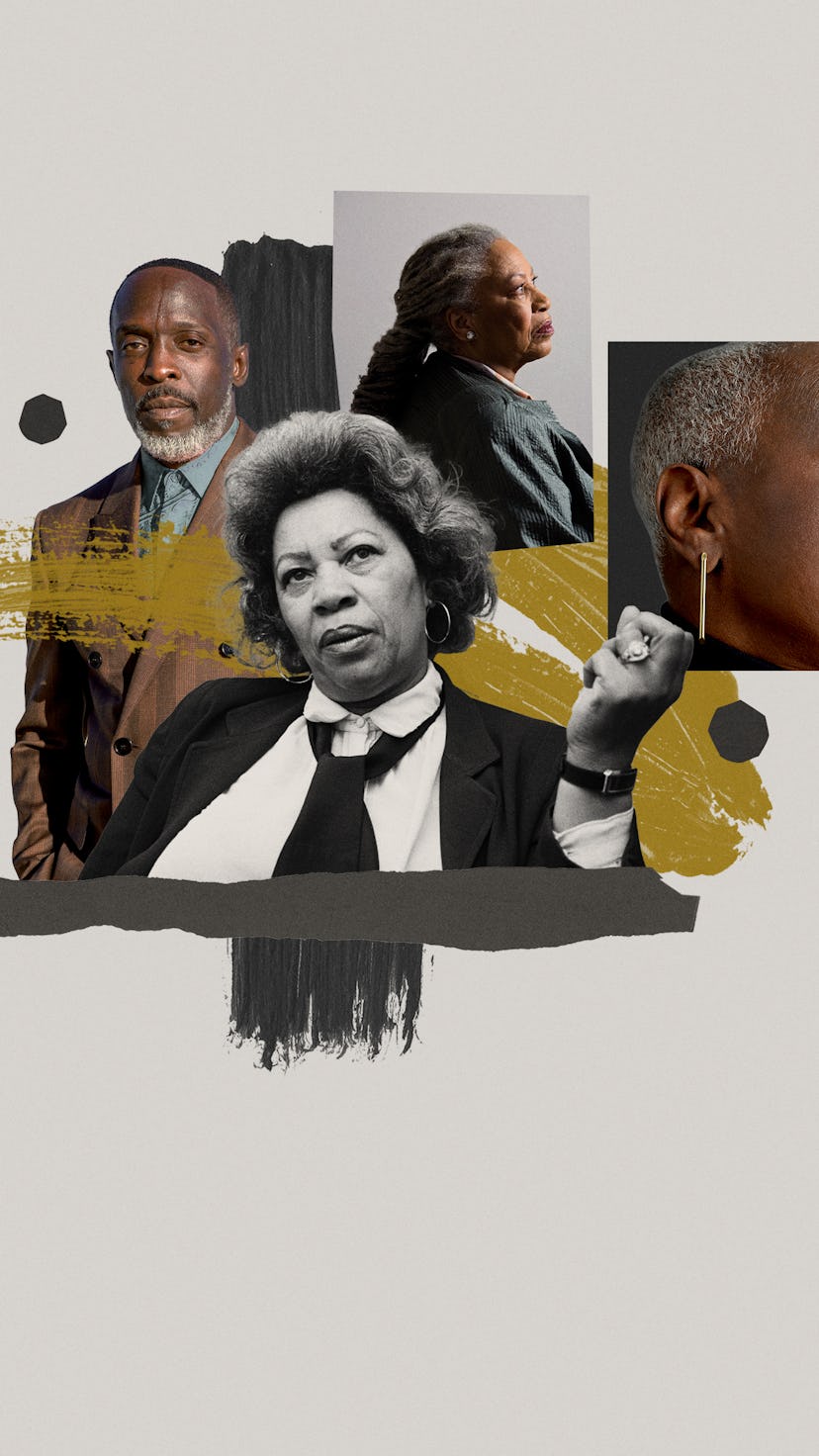(Hair)
Going Gray Is A Revelation
What if we sensed our beauty all along?

The other day I was sitting on the stoop with my downstairs neighbor, a 70-something Black man with a lot of opinions, when he suddenly looked at my hair and said, “You got a lot of gray hair! How come you got so much gray hair?” I said, “Listen, I am 52 years old.” And he said, “And you’ve got THAT much gray hair?”
What’s funny is that I actually don’t have that much gray hair. It has only just started to come in around my face over the past year or two, and I love it. I was struck, though, that he managed to both insult me (in a good humored way) and compliment me in one fell swoop — I have too much gray hair, but am not old enough to have it? It made me think, too, about the way aging changes the way we think about beauty.
We simultaneously ache for the validation, and feel ashamed for wanting it.
It seems like kind of a dumb time to be writing about beauty. Such a shallow subject to ponder as we continue to (just barely) manage the pandemic, the delta variant, our kids being in school with the children of anti-vaxxers, Texas, climate change, and the list really does go on. And yet, after the recent loss of actor Michael K. Williams, I found myself deeply moved by a quote of his that resurfaced amid the myriad messages of appreciation and mourning that circulated on social media after his death. In an interview for Men’s Health, he said: “I spent a lot of my younger years not feeling beautiful. When I look back at my pictures now as a kid, I’m like, ‘Damn, you were actually beautiful.’ I couldn't see it back then.”
I already knew I was going to write this piece before Williams died, but this quote reminded me of my context. Because there’s beauty, and then there’s us. By us, I mean Black folks — we who have never been factored into the “real” standard of beauty in America, the white standard of beauty. Many of us search for any reflection of ourselves in our surroundings, particularly during our youths, much less a reflection or representation of ourselves that is deemed beautiful. And for a lot of Black girls and gay Black boys (Williams was gay) this lack of reflection hits in an especially poignant way. In America, Black girls are too often hyper-sexualized, while gay Black boys are de-sexualized or erased altogether, when often all we want is to see ourselves presented as beautiful. We simultaneously ache for the validation, and feel ashamed for wanting it.
In this way, though, there is a majesty, a gift, in getting older. I actually really like getting older. Although, doing so while also navigating the current generation’s insistence on one’s own hotness, in every way, on every possible media platform, is an increasingly ambitious endeavor. Still, along with the profound solace of mercifully depleted f*cks to give, comes a deeply intimate, unrestrained sense of beauty — your own, and all that is in and around you. It’s less a feeling of who or what is beautiful, and more of a revelation. Indeed, as the late Toni Morrison once said, “At some point in life the world’s beauty becomes enough. You don’t need to photograph, paint or even remember it. It is enough.”
I welcome my gray, as it begins to travel through the roots of this storied hair on my head... It is a crest of our culture.
One of the hallmarks of Black beauty we find among and for ourselves as Black folks as we age and gray, is the striking spill of our silver hair against the hues of our brown skin. Both Williams and Morrison wore their gray with pride — Williams in his carefully coiffed beard (he kept his head hair short), Morrison in her unmistakable and glorious crown of dreadlocks. I welcome my gray, as it begins to travel through the roots of this storied hair on my head, continuing the narrative with its own next chapter. It is a crest of our culture.
In that way, maybe my 70-year old neighbor, his own hair gray and clipped in a shorn afro, dark brown face weathered, eyes mischievous, was neither insulting nor complimenting me, but rather ushering me in to the latter part of a shared Black cultural communion, and affirming kinship. Embracing my gray hair is not brave, as many would consider it in our youth-obsessed society where hair dye bottles fly off the shelves. For me, it’s a matter of following its lead to a place where I can reflect, as Williams did, on my beautiful young self, and where, as Morrison so elegantly professed, beauty is enough.
This article was originally published on